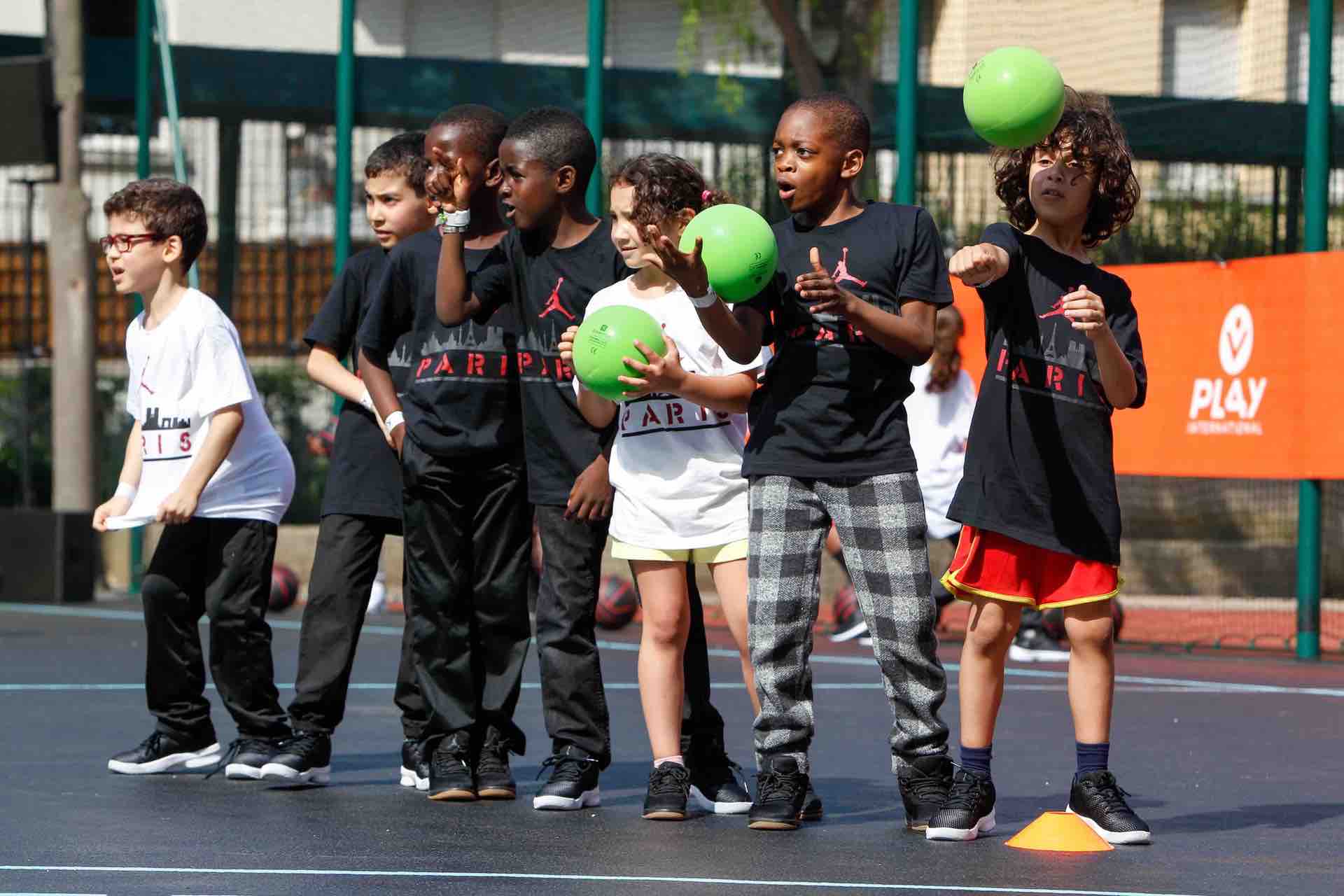
CHANGE OF PERSPECTIVE ON DISABILITY
ISSUES RELATED TO THE THEME
The term "disabled" is now considered stigmatizing because it reduces an individual to his or her illness or disability without taking into account the situation and context, or the capacities and resources of the person. The term "disabled" is always used, provided it is associated with a specific action or situation. Disability therefore refers to a situation, which is why we call it a disability situation. We will now speak of disability to talk about the alteration or damage of one or more functions of the body, whether temporary or permanent (what was called before "disability"). Disability leads to disability (the inability to do something), which in turn will lead to a disability situation in a specific context. It is therefore essential to be inclusive with people with disabilities.
Two essential means are compensation and inclusive behaviour. Compensations are the adaptations of society to people with disabilities. They limit the disadvantage(s) caused by their disability(ies) in a given situation. These compensations make it possible to make people with disabilities more autonomous by meeting their specific needs, and thus to better include them in society. Inclusive behaviours are the attitudes and actions that enable people with disabilities to feel included in society. These behaviours will promote the autonomy of people with disabilities: it is often better to "help to do" rather than "do instead". In general, inclusive behaviour also means adapting to the person's needs.
Sesionet
Sesionet
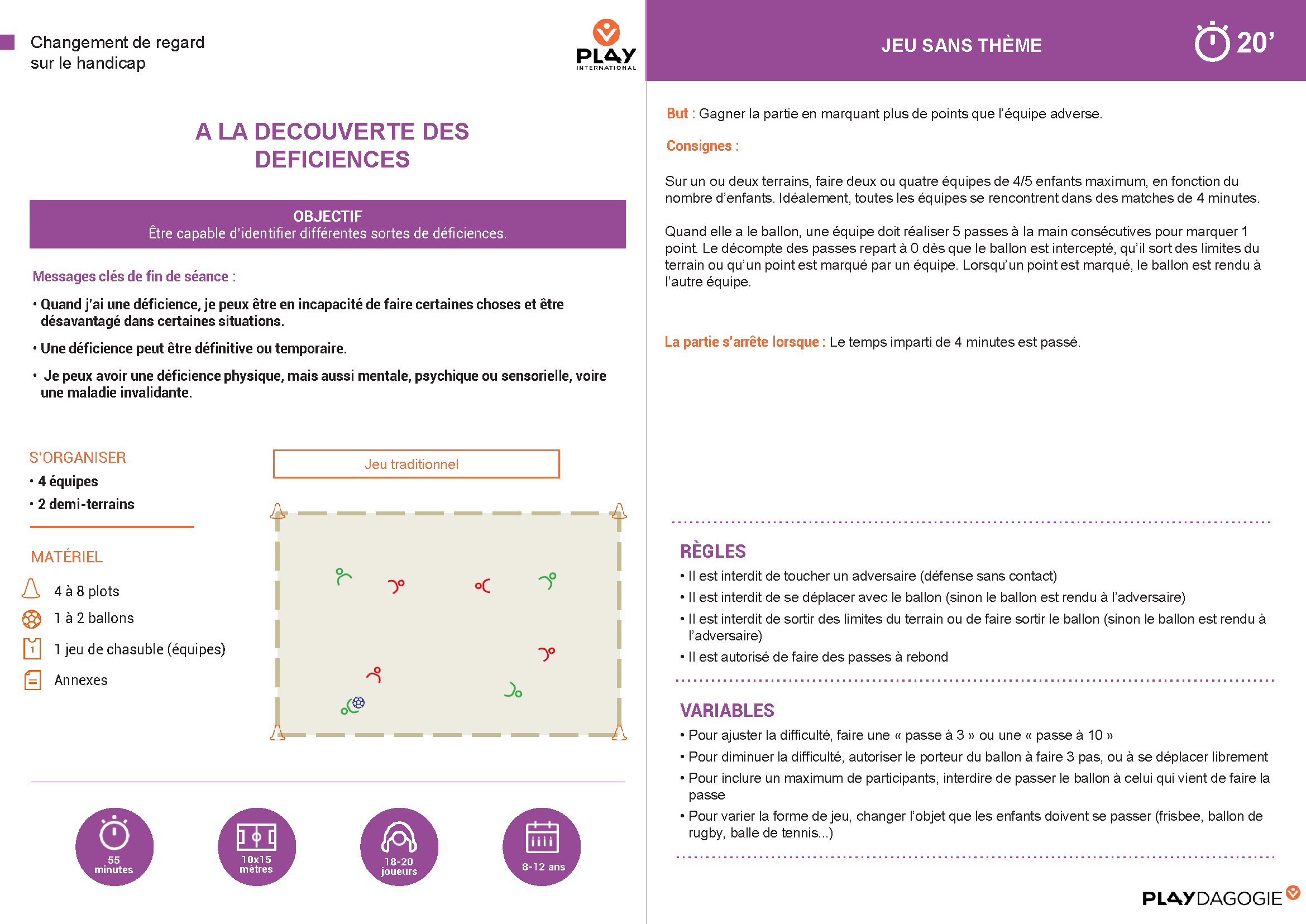
Jeu traditionnel de passe à 5 pour permettre aux enfants d’identifier différentes formes de déficiences.
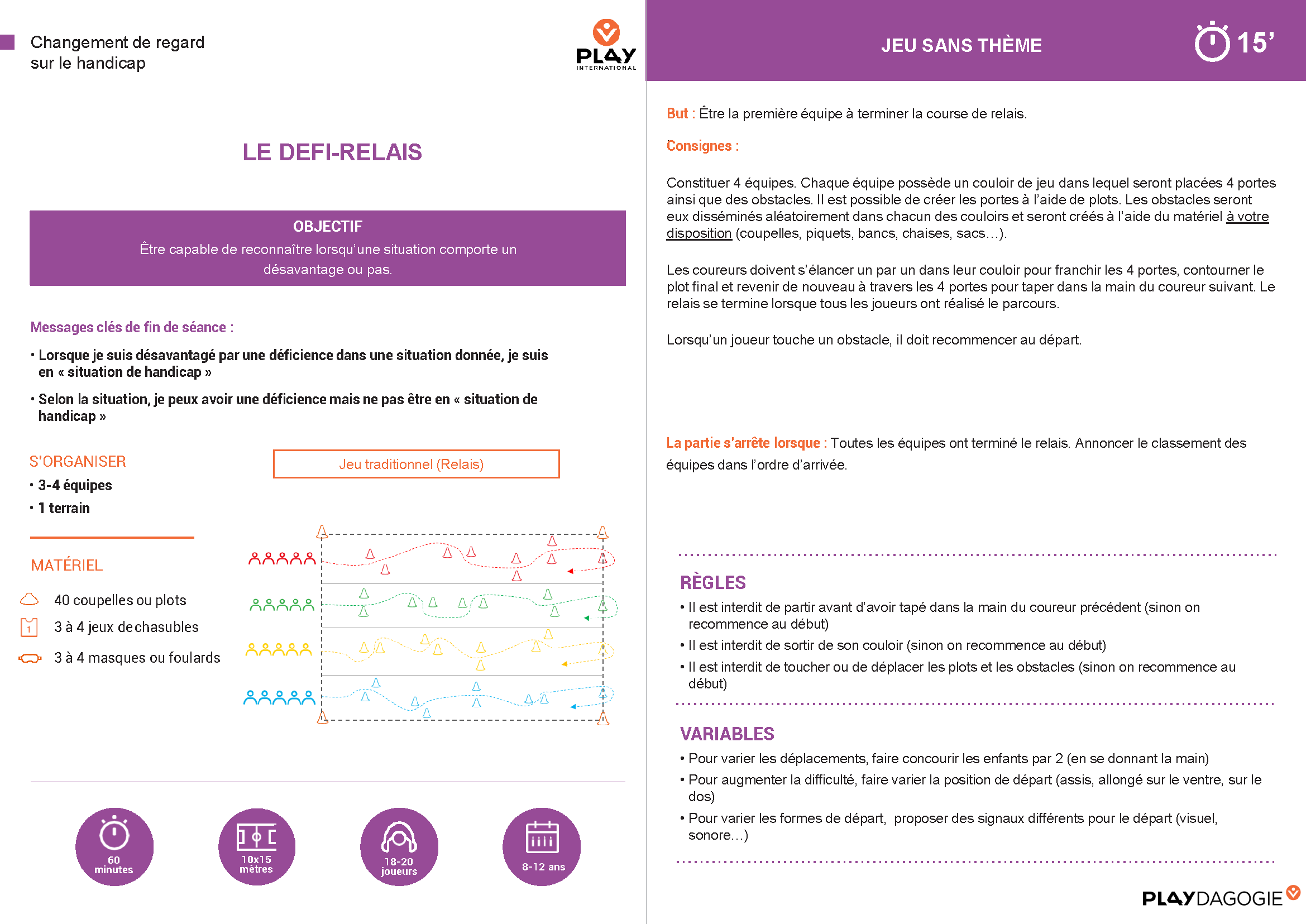
Jeu traditionnel du relais pour permettre aux enfants de reconnaître lorsqu’une situation comporte un désavantage ou pas.
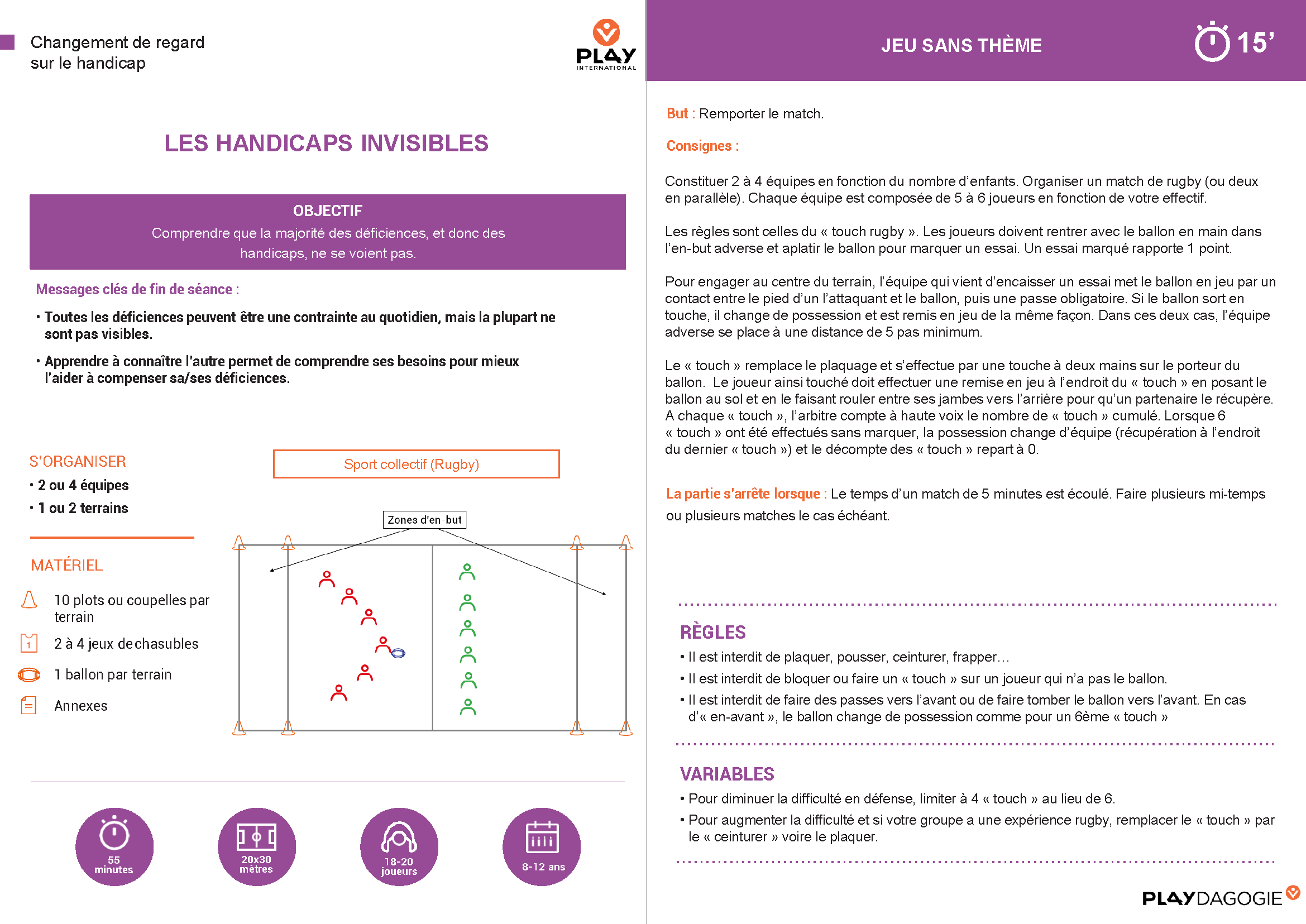
Séance de rugby pour permettre aux enfants de comprendre que la majorité des déficiences, et donc des handicaps ne se voient pas.
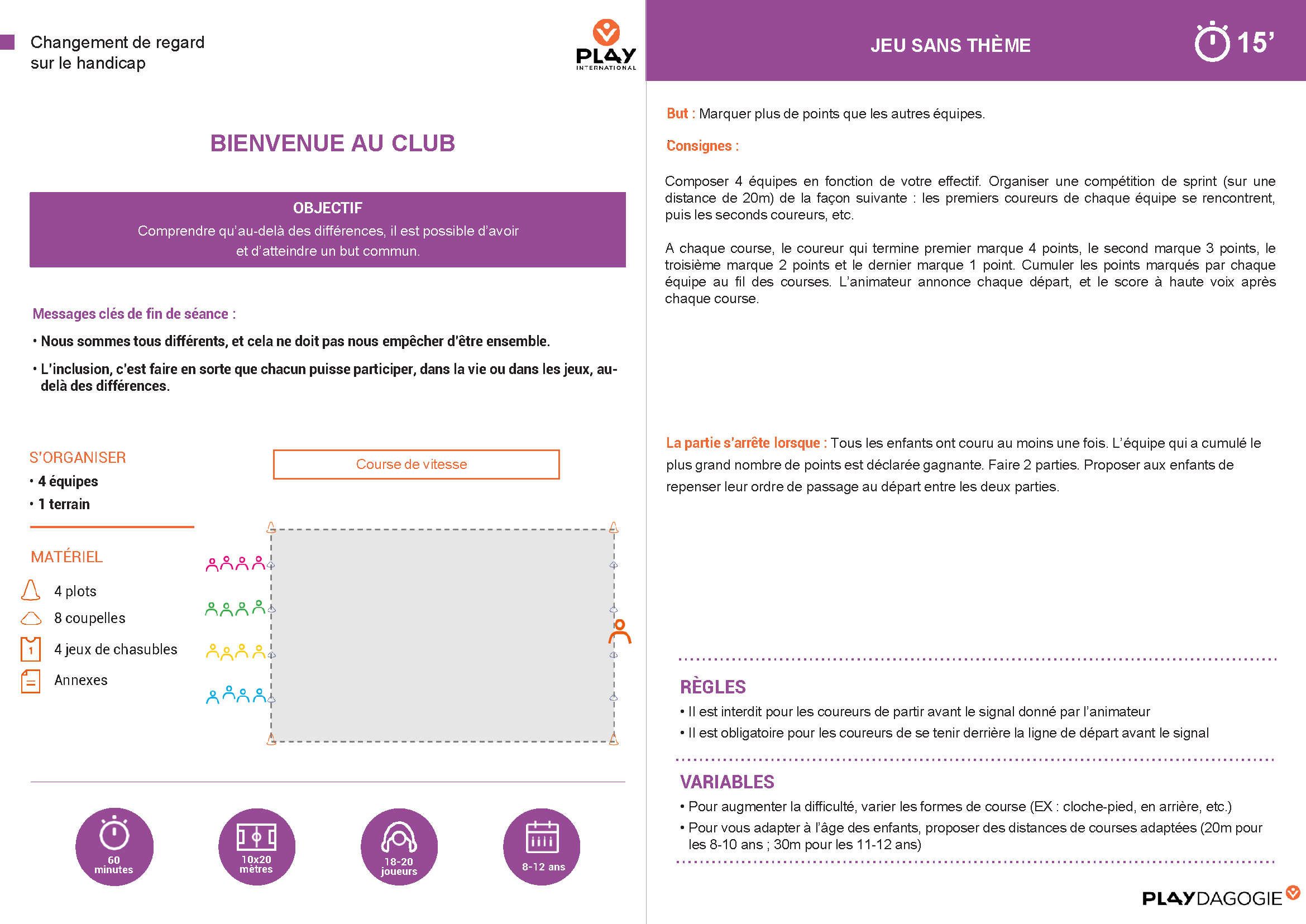
Séance de course de vitesse afin de permettre aux enfants de comprendre qu'au delà des différences, il est possible d'avoir et d'atteindre un but commun.
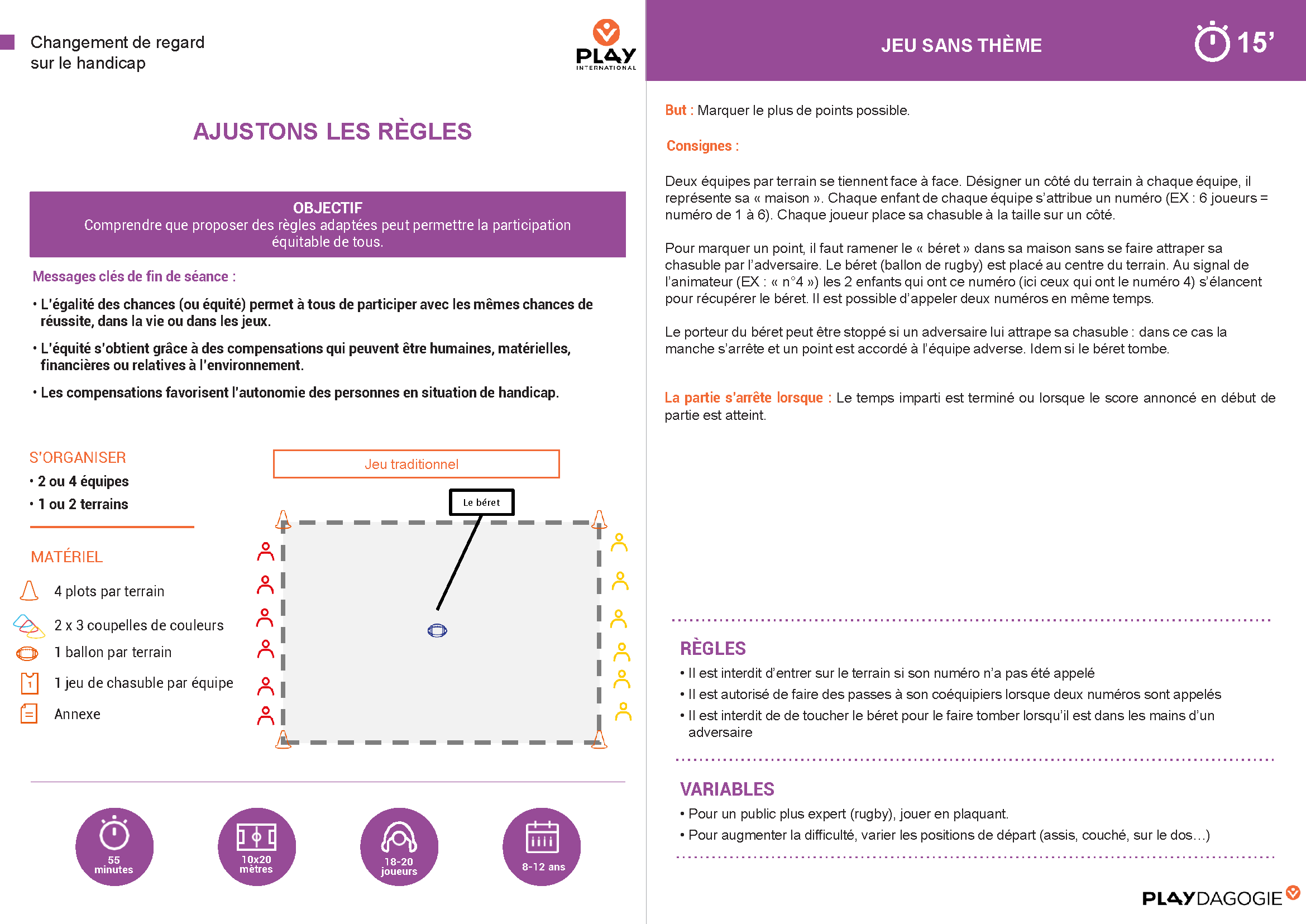
Jeu traditionnel du béret pour permettre aux enfants de comprendre que proposer des règles adaptées peut permettre la participation équitable de tous.
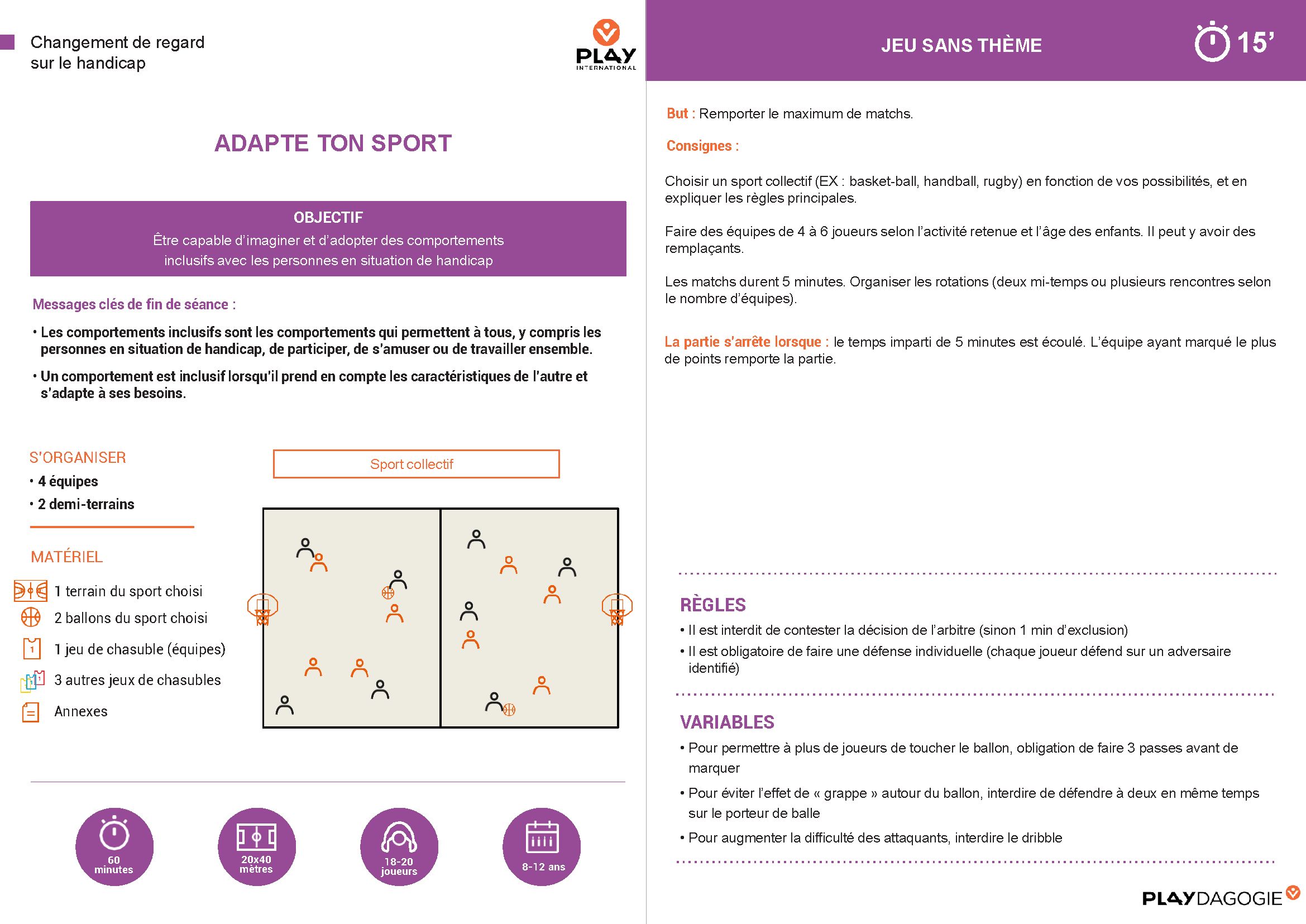
Séance de basket-ball et de handball pour permettre aux enfants d’imaginer et d’adopter des comportements inclusifs avec les personnes en situation de handicap.
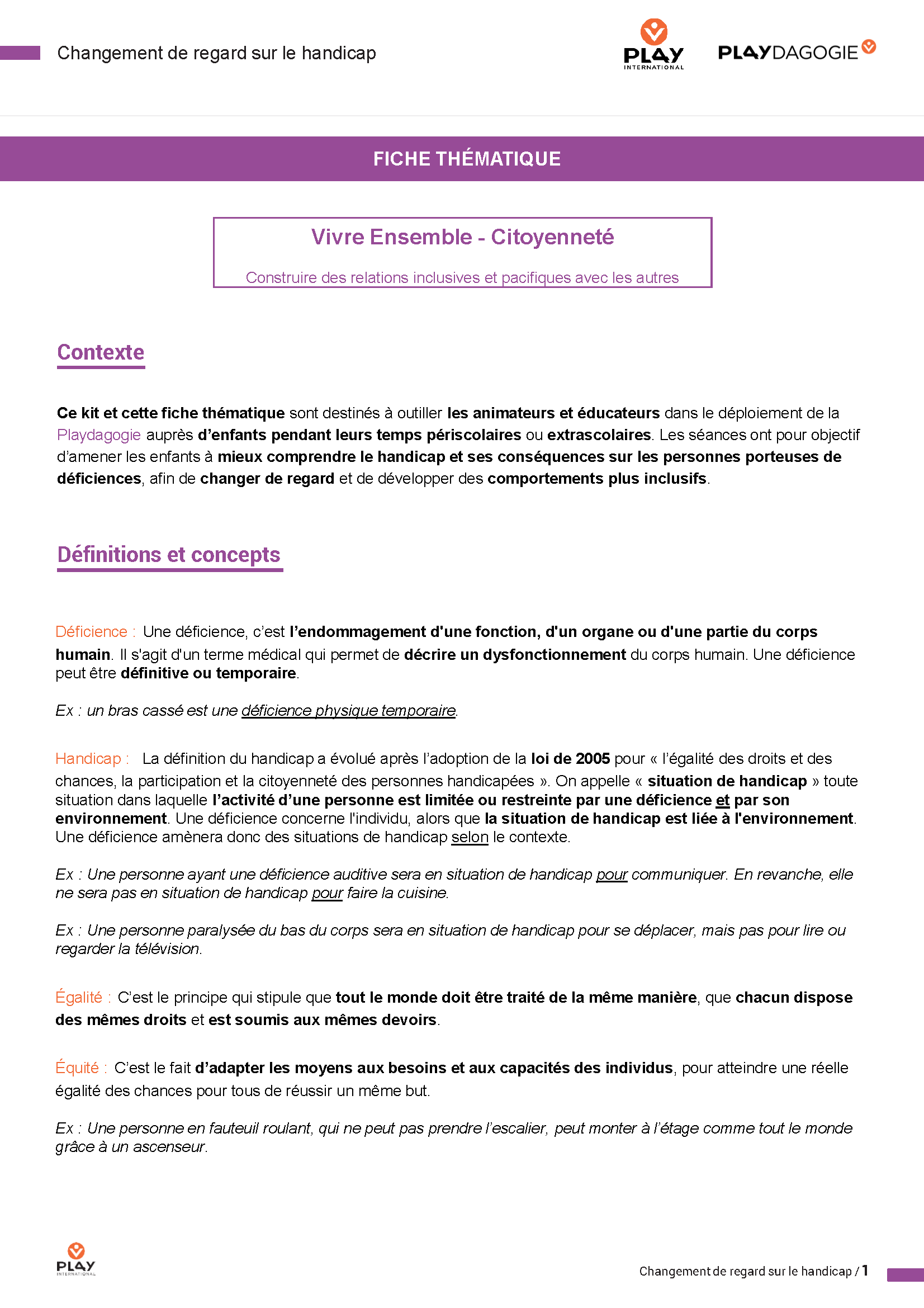
La fiche thématique Playdagogie Changement de regard sur le handicap présente le contexte, les enjeux et les notions clés liés à la thématique pour accompagner les enfants.
Download kit
Ressources
Pour aller plus loin
Pour les adultes
Comité National Coordination Action Handicap
Consulter le site
Association des Paralysés de France
Consulter le site
Handicap International
Consulter le site
Handisport
Consulter le site
FFSA
La Convention Internationale relative aux Droits des Personnes Handicapées
Avec les enfants
Dessin animé sur YouTube – Vinz et Lou
" Et si on s'parlait du handicap ? " - Cap vers le handicap
Voir la vidéo
« Je suis dyslexique » - Court métrage d'animation
Liste de livres à destination des enfants (6-11ans) qui abordent le handicap :
Wikimini sur le « handicap »
 FR
FR EN
EN